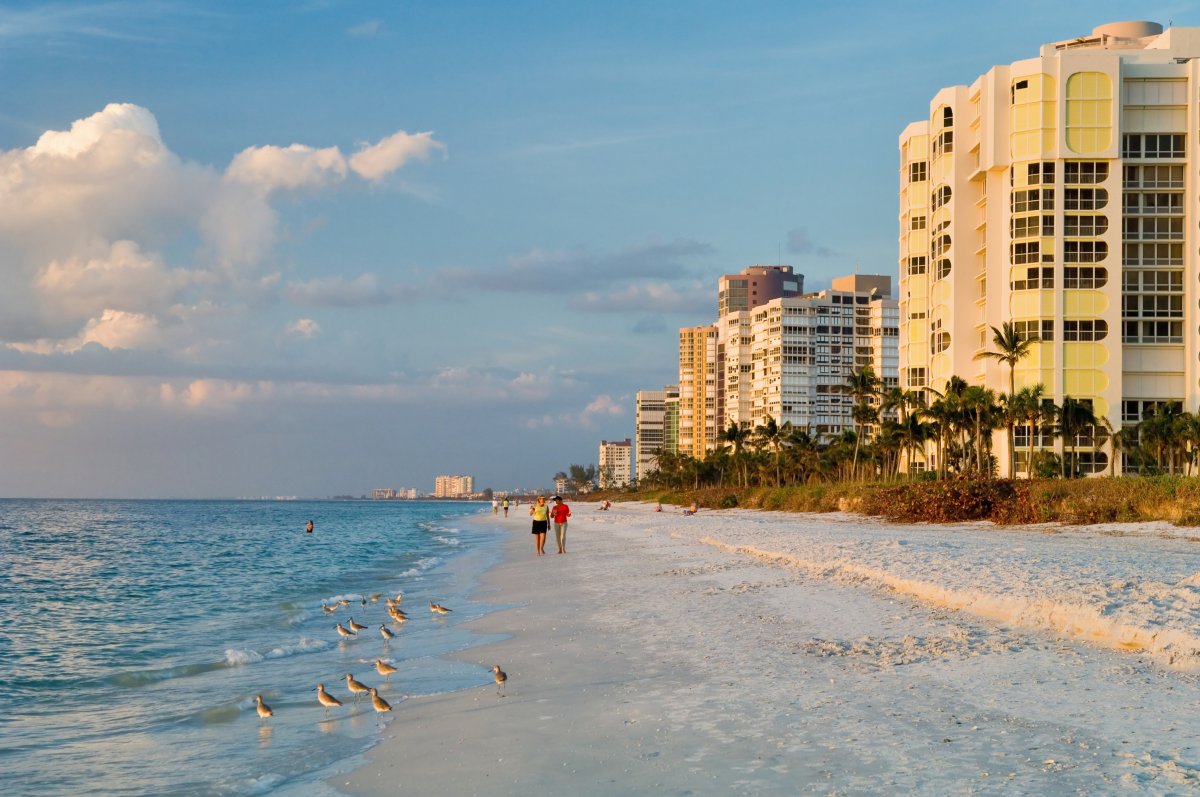Florida is no longer the retirement haven it once was, according to Bankrate’s latest study, which ranks it eighth on the nation’s list of best states for retirement.
Delaware stands out as the best state for retirees, thanks to its high-quality health care, light tax burden, affordable homeowners insurance and pleasant weather, according to the New York-based financial services company’s annual rankings.
Bankrate’s analysis, which considers affordability, overall well-being, cost and quality of health care, and crime rates for every state in the U.S., found that Florida, often considered a retirement mecca, ranked eighth for the second year in a row. It was behind Delaware, West Virginia, Georgia, South Carolina, Missouri, Mississippi and Pennsylvania.
More from the Newsweek Vault: Learn What Steps to Take If Your Retirement Income Is Not Enough

Getty Images
“A decade ago, Florida would have been the best place to retire. But with skyrocketing home prices, property taxes, and homeowners insurance, it’s worth pausing to make sure you can afford the retirement lifestyle you want in Florida,” said Bankrate analyst Alex Gailey Newsweek.
While Florida is no longer in the top five, it still ranks eighth on Bankrate’s rankings, making it still among the most attractive states for American retirees.
More from the Newsweek Vault: Here’s the Latest Social Security Retirement Benefit Forecast: Will It Be Enough to Keep Up with Inflation?
“Florida is a warmer state with some nice beaches and golf courses that are attractive to retirees. It also ranks well for overall well-being and crime,” Gailey said.
“One of the biggest advantages of flocking to Florida for retirement is that there is no state tax on retirement income, such as Social Security, pension funds, 401(k)s or IRAs. Healthcare costs are also more affordable in Florida than in the rest of the country, and the quality of healthcare is average,” he added.
But the state falls short on other things for retirees, due to high housing prices, high property taxes, high sales taxes and high homeowners insurance.
“All of these have increased significantly in Florida over the last few years,” Gailey said. “Florida is also subject to a lot of natural disasters, particularly hurricanes and floods, which can be financially devastating.”
The real issue, Gailey said, is that Florida is not as affordable for retirees as it once was. “Retirees who want to move to Florida for the sunny winters, beaches and affordable healthcare may have to make sacrifices in other areas,” he said.
Why Florida Is No Longer a Retirement Haven
“Florida has long reigned as the retirement capital of the United States thanks to its coastal living, world-class golf, and stunning ocean views. However, the Sunshine State also has a dark side,” says Kris Bruynson, Vice President of Marketing and Product at Moneywise Newsweek.
“With overpopulation, increasing hurricane threats, and most importantly, significant pressure on rapidly rising housing and food costs, retirees are being pushed out of the state,” he added. “To maintain their previous lifestyles, newcomers now need significantly larger savings, forcing seniors to rethink their retirement plans.”
In a recent Moneywise survey, Florida ranked tenth on the list of states with the highest risk of senior bankruptcy. The Sunshine State had an estimated risk score of 54.23.
Florida ranked 23rd in the survey for overall cost of living, but the study found that a quarter of seniors in the state live below 150 percent of the poverty line, ranking the state 7th nationwide for elderly poverty, Bruynson said.
“Several metropolitan areas in Florida have experienced some of the fastest-rising inflation in the country. This rapid increase has put tremendous pressure on retirees, especially given the 73.5% increase in housing prices over the past five years.”
Electricity bills also disproportionately affect seniors. Florida’s annual electricity cost currently averages $2,069, 28 percent more than the national figure.
“The financial strain is even more pronounced with annual transportation and food expenses reaching $9,300 and healthcare expenses reaching $9,501,” Bruynson said.
“Florida retirees face a perfect storm of financial pressures. Housing, utilities and living expenses alone, without even factoring in debt, property maintenance or insurance, create a challenging environment for seniors,” he added.
Will Retirees Stop Flocking to Florida?
The Sunshine State currently has one of the highest percentages of people aged 62 and over compared to its population, but that could change in the future.
“If home prices, property taxes and homeowners insurance rates continue to climb, I wouldn’t be surprised if Florida starts to lose its appeal as a retirement destination,” Gailey said.
Florida’s popularity as a retirement haven is showing signs of waning, with the number of out-of-state retirees set to decline by 0.2 percent between 2021 and 2023, according to Bruynson.
“The increased hardship in Florida could slow the exodus of retirees, but it’s hard to see a significant decline,” he said.
“The state’s overall appeal will likely continue to attract seniors, but we may see a shift in the types of retirees moving there. Those with larger budgets may still be drawn to the state, but those on fixed incomes may explore alternative locations.”